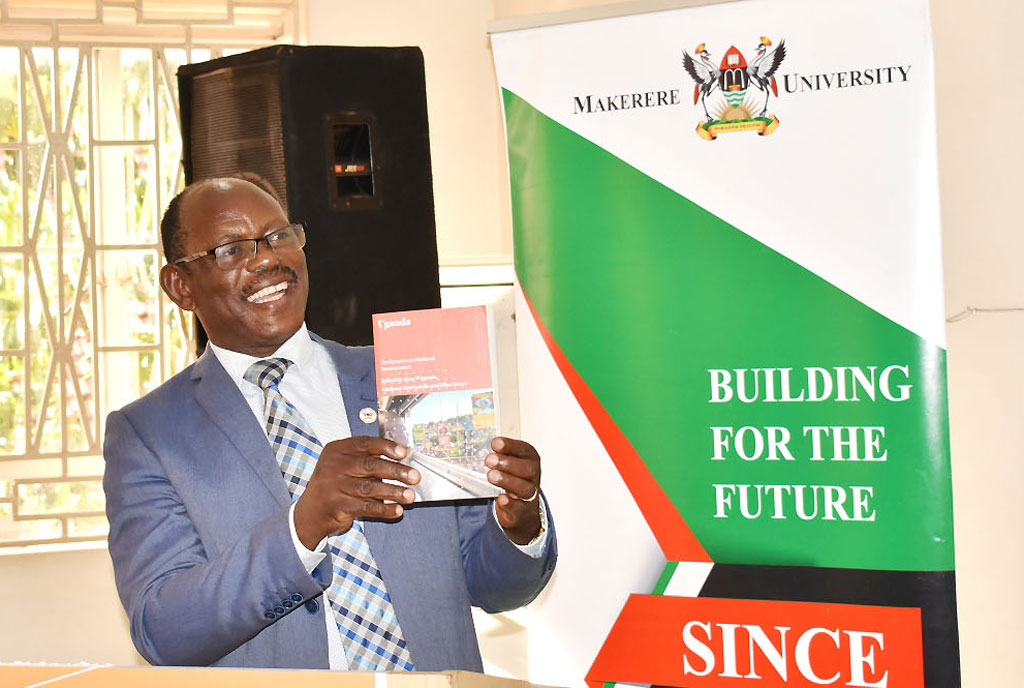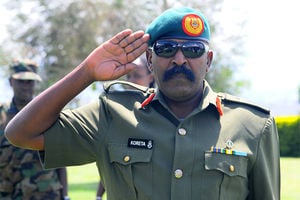
Moses Khisa
President Museveni was an early convert into the neoliberal free markets creed. A few years after capturing power in 1986, he became easily the most vociferous believer in the ideology that left on their own, and once the government was out of the way, free markets offered the only path to the promised land of prosperity for a poor country like Uganda.
To be sure, Mr Museveni was not alone, in fact he was not the first African head of state who pivoted away from left-leaning economic thought (oriented toward collective pursuit of common socioeconomic goals) to the Western-prescribed template that became known as neoliberalism where free markets rule and the state is a passive night watchman.
Before Museveni, arguably the biggest neoliberal catch on the African continent, was Ghana’s Jerry Rawlings. He came to power on the last day of 1981 in a second military coup, the first having been in June 1979 against the Supreme Military Council junta of Gen Frederick Akuffo.
There was a short government following the 1979 coup – it lasted only a few months. It was instructively called the Armed Forces Revolutionary Council, comprised of a group of junior army officers and members of different social groups, including trade unionists. Scholars later referred to them as ‘small boys’ who were up against the ‘big men’ that had supposedly messed up the country.
The ‘small boys’ were united by an ambition to engineer a ‘people’s’ revolution. They initially called it ‘house cleaning’. It was an exercise of exorcism, ostensibly to rid Ghana of the decay and abuse of the ancient regime.
Three former heads of state were publicly executed. A high court judge was murdered in cold blood. ‘Let the blood flow’ was the mantra of the time. But following elections at the end of 1979, a new government of Dr Hilla Limann came to power. It didn’t last. On December 31, 1981, Rawlings and his boys returned with another coup to continue with the revolution.
For the next two years the progressive forces seeking revolution were in charge pushing to turnaround Ghanaian economics and politics in a decidedly pro-people and left-leaning way. It wasn’t long, though, for the country to run broke on the back of the economic decline of the 1970s. Rawlings tried to get financial aid from the Soviet Union, and later from Libya’s Muammar Gaddafi; he failed. The next stop was the International Monetary Fund (IMF). Before long, the ‘small boys’ in key government positions got replaced by ‘big men’.
Deep austerity measures and far-reaching market reforms were implemented from around 1983, and Ghana went on to emerge as a model of IMF sponsored economic change. Around the same time, Structural Adjustment Programmes (SAPs) were adopted by Milton Obote’s government in Uganda.
When the NRM and Mr Museveni came into town in 1986, they initially attempted to resist the tide only to later fully fall in line. Starting with the currency reform of 1987, Uganda became a posterchild of neoliberalism – the ideology that government interference in the economy is wrong and that free market forces should rule unfettered.
Mr Museveni and his National Resistance Army (NRA) rebel group, with earlier iterations including Fronasa, for long had a flirtation with left-leaning and Marxist-inspired ideological currents that favoured societal needs over individual interests, more state activity in the economy than private business and a central role of the state and government in engineering socioeconomic transformation.
The catch-all label used at the time was socialism or communism whose global godfather was the Soviet Union representing a counter-force to Western dominance under the patronage of the United States and a commitment to capitalism and free markets. With the Soviet Union blinking and ultimately collapsing, the West pressed on, and through the IMF as well as the World Bank aggressively spread the idea that governments have no business doing business and that privatisation of formerly government parastatals, economic liberalisation and deep spending cuts were necessary measures to reform and relaunch economic transformation.
The then British Prime Minister, Margaret Thatcher, famously articulated the notion that ‘there was no alternative’ (TINA) to free markets and capitalism. As the Soviet Union disintegrated, the Berlin Wall came down and the communist economic alternative in Eastern Europe collapsed along with disastrous outcomes of centralised planning around the world including Julius Nyerere’s Ujaama experiment, there was a deep sense of triumphalism in the West.
It was captured in a 1989 article by the political thinker Francis Fukuyama: ‘the end of history.’ History did not end. Countries like Uganda that embraced neoliberal policies and ceded economic policymaking to the IMF and the World have had four decades to take stock: except some modest GDP growth and macroeconomic stability, as I argued in two previous columns, economic transformation remains elusive. In fact, the NRM government and President Museveni have in recent years half-heartedly conceded that leaving everything to market forces is not entirely a good idea for a poor country. It is to this that I shall turn next.


